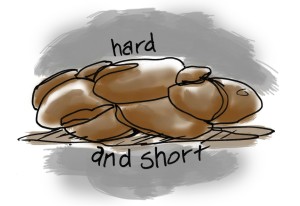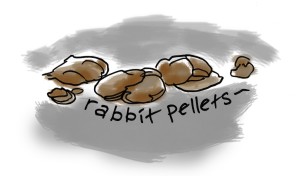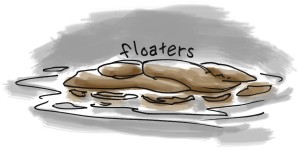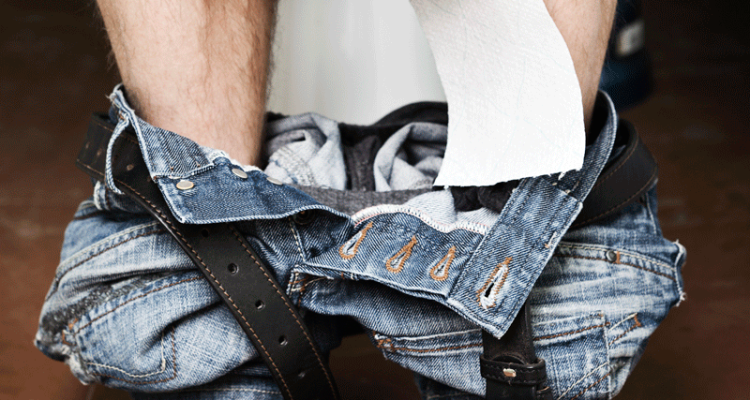The healthiest relationship athletes ever form isn’t with a trainer, coach, or fellow athletes. It’s with their gut.
It might not be written into the training plan, but a key part of an athlete’s regimen should be his or her performance in, well, the bathroom. That’s right, we’re talking about that, the often-off-limits, icky-to-think-about number two.
All snickering aside, most serious athletes know that the food they consume has a direct impact on their performance. But what scientists are discovering now is that the way we digest our food is also influential. Right now, billions of microorganisms are working together in your intestines to break down food and convert it into energy. However, sometimes our “gut bugs” fall down on the job, leaving us open to problems like fatigue and inflammation.
Until recently, no one thought much about the intestines when it came to training regimens. Sure, athletes were told to eat right and drink plenty of water to stay regular and fit, but that’s about it. Scientists have discovered what they’ve termed the “microbiome,” a collection of microorganisms unique to each human’s gut that aid in digestion and can significantly affect an individual’s health. Maintaining a healthy relationship with one’s gut bugs is key to an athlete’s performance, says Dr. Luigi Gratton, former track and field athlete at UCLA and current vice president of marketing at Herbalife. That’s good news for your overall gut health; simply paying attention to what’s happening in the bathroom can help you self-diagnose and correct your diet and intake accordingly.
Related: 5 Surprising Foods that Slash Stress
“The importance of gut health is just recently being recognized as essential to good health, especially for athletes,” Dr. Gratton says. “For years, the gut was simply seen as a tube running through the body where food passes for digestion and elimination. With the relatively recent discovery of the human microbiome, everything has changed. For athletes, microbes play a key role in inflammation throughout the body, and [Tweet “self-regulating gut health can reduce inflammation throughout the body”] — in the muscles, joints, liver, and the brain.”
[Tweet “How do you know if your microbes are doing their job? The answer lies in, yes, the toilet bowl.”] You could very well be flushing away the evidence of a digestive imbalance or intestinal inflammation. According to Dr. Robert Pomahac, founder of MaxHealth LA, an ideal stool is a solid, soft log that passes easily.
“Your body is approximately 75 percent water, and so is your stool,” Dr. Pomahac says. “The remaining 25 percent is a mixture of fiber, live and dead bacteria, other cells, and mucus. Look for imbalances to know if there’s a problem in your stomach. A healthy stool should be medium to light brown, it should be soft and formed into one long piece, about one to two inches in diameter, and up to 18 inches long. Your stool should be S-shaped, which is the same shape as your lower intestine.”
If your stool isn’t measuring up, here are some common problems and tips for self-diagnoses from Dr. Jennifer Burns, gastrointestinal specialist at The Bienetre Center in Phoenix, Arizona:
 Loose stool can be just slightly runny or full-blown diarrhea. It means that there is mal-absorption of nutrients, inflammation, or infection in the gut. If loose stool is greenish in color, it means it hasn’t sat in the intestine long enough to absorb nutrients, meaning you could be malnourished. Loose stool is usually accompanied by gas and bloating.
Loose stool can be just slightly runny or full-blown diarrhea. It means that there is mal-absorption of nutrients, inflammation, or infection in the gut. If loose stool is greenish in color, it means it hasn’t sat in the intestine long enough to absorb nutrients, meaning you could be malnourished. Loose stool is usually accompanied by gas and bloating. Dr. Burns says very thin stool is often a product of heavy stress on the body, either by too much physical strain or even mental anxiety. Other symptoms could be fatigue, gas, bloating, foggy brain, or undigested stool, which means seeing chunks of food either embedded in the stool or floating in the toilet.
Dr. Burns says very thin stool is often a product of heavy stress on the body, either by too much physical strain or even mental anxiety. Other symptoms could be fatigue, gas, bloating, foggy brain, or undigested stool, which means seeing chunks of food either embedded in the stool or floating in the toilet. Hard-to-pass, short chunks are usually a symptom of constipation, which is product of inflammation, dehydration, or fiber deficiency in the gut. According to Dr. Burns, you should be going number two at least once a day. “To know what your bowel retention time is, eat raisins, beets, or something that will make your stool a different color, then see how long it takes for the stool to change color,” Dr. Burns says. “If it’s more then a day, [then] you may need to add in some extra fiber to your diet.”
Hard-to-pass, short chunks are usually a symptom of constipation, which is product of inflammation, dehydration, or fiber deficiency in the gut. According to Dr. Burns, you should be going number two at least once a day. “To know what your bowel retention time is, eat raisins, beets, or something that will make your stool a different color, then see how long it takes for the stool to change color,” Dr. Burns says. “If it’s more then a day, [then] you may need to add in some extra fiber to your diet.” If you’re straining on the toilet and getting rounded pellets in response, you could be overdoing it on the protein. To fix the problem, up your water and fiber intake to match the increase in protein.
If you’re straining on the toilet and getting rounded pellets in response, you could be overdoing it on the protein. To fix the problem, up your water and fiber intake to match the increase in protein. If you don’t have diarrhea, but your stool is dark green to yellowish over a period of time, you might need to see a doctor, as these colors sometimes indicate that the lining of the colon is so irritated that it’s coming out during bowel movements. Chronic mucosal stool could be symptomatic of serious gut problems, such as irritable bowl syndrome (IBS), or even Celiac Disease.
If you don’t have diarrhea, but your stool is dark green to yellowish over a period of time, you might need to see a doctor, as these colors sometimes indicate that the lining of the colon is so irritated that it’s coming out during bowel movements. Chronic mucosal stool could be symptomatic of serious gut problems, such as irritable bowl syndrome (IBS), or even Celiac Disease. According to Dr. Burns, “sinkers” are better than floaters. If your stool is floating to the top of the water, your stool is too fatty. Ease up on the meat and switch to fruits and veggies instead.
According to Dr. Burns, “sinkers” are better than floaters. If your stool is floating to the top of the water, your stool is too fatty. Ease up on the meat and switch to fruits and veggies instead.The bottom line? According to all the doctors we spoke with, a healthy diet is the key to a healthy gut. And proper hydration, fiber, and a probiotic supplement or food (such as Kefir or plain yogurt), should keep you happy, healthy, and, most importantly, regular.
Best Probiotic Supplements for Optimizing Gut Health
Feel like your guts are working at near-optimal capacity? Then you probably only need a daily cup of plain yogurt to maintain a healthy schedule and minimize occasional discomfort.
However, if you commonly experience abdominal pain or irregularity after intense exercise, you should probably supplement your diet with a probiotic pill. A recent study by the National Institute of Health found that probiotic supplements reduced the frequency and severity of intestinal problems in athletes who participated in frequent, exhausting physical activity.
Dr. Burns recommends several supplement brands, including Primal Defense, Pure Encapsulation Probiotics, Integrative Therapeutics Probiotics, and Jigsaw Probiotics for athletes looking for relief during high-intensity training. “I like these because, from personal experience and with my patients, they work really well,” Dr. Burns says. “The athletes I work with usually notice an increase in energy, decrease in gas and bloating, and better-formed stools within a week or so of beginning these supplements.”
Other ways paying attention to your body will keep you healthy…
3 Healthy Lifestyle Tricks to Try Today
Fighting the Fog: Surprising Strategies to Prevent Alzheimer’s

